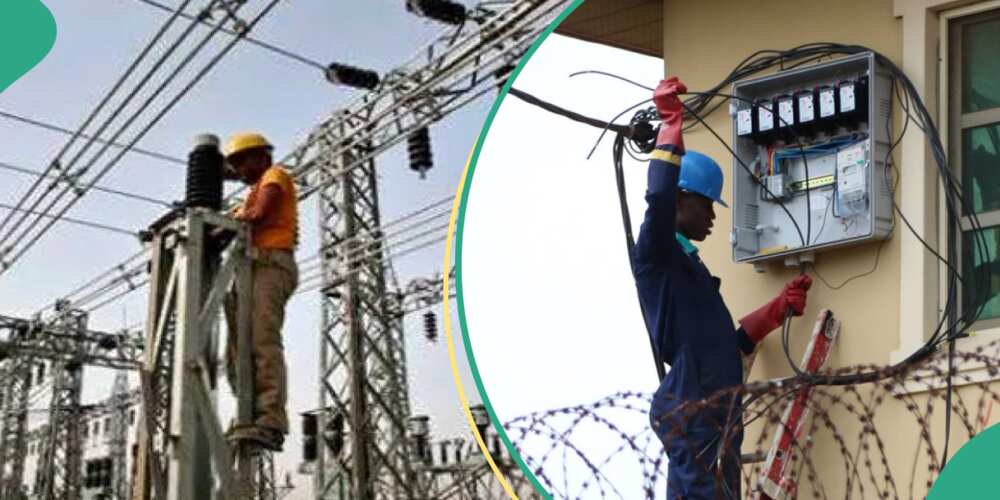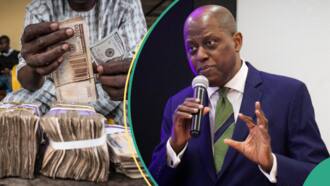Electricity Tariff May Drop as FG Considers Fresh Subsidy for GenCos Amid Gas Price Hike
- The federal government is considering returning full subsidy to the power sector
- If implemented, the FG will direct the subsidy to GenCos to aid their operation amid rising gas prices
- It is believed that a significant subsidy will translate to reduced tariffs and improved power supply
PAY ATTENTION: Click “See First” under the “Following” tab to see Legit.ng News on your Facebook News Feed!
Legit.ng journalist Victor Enengedi has over a decade's experience covering Energy, MSMEs, Technology and the stock market.
There are clear signals that the federal government is contemplating a new subsidy for electricity generation companies (GenCos) to mitigate the impacts of the recent increase in gas prices imposed by producers.
It has been reported that the Nigeria Electricity Regulatory Commission (NERC), in collaboration with key stakeholders in the industry, is in the final stages of finalising a new agreement for the sector.

Read also
"It's not true": NLNG refutes alleged hike in price of cooking gas, says marketers got 380MT
Stakeholders insist that a subsidy in the sector will translate to a reduction in tariffs for electricity users and improve electricity supply across the country.

Source: UGC
PAY ATTENTION: Donate to Legit Charity on Patreon. Your support matters!
FG's reduction of subsidy in the power sector
An analysis of the sector regulator's most recent report reveals that the federal government's subsidy to the electricity sector has experienced a significant decrease of approximately 80% between 2019 and 2022.
Zainab Ahmed, the former minister of finance, announced the removal of government's subsidy in the sector in in 2022.
This decrease comes at a time when power companies are requesting an increase in power tariffs.
Approximately 80% of Nigeria's power plants rely on gas as their primary energy source.
This has compelled the federal government to take notice of their challenges and address them.
GenCos weighed down by debts
The GenCos are facing outstanding debts of more than N1 trillion owed by the electricity distribution companies through the Nigerian Bulk Electricity Trading (NBET).
The GenCos lament being unable to make power available due to the enormous debts owed them by electricity distribution companies (DisCos) and the Transmission Company of Nigeria (TCN) through the Nigerian Bulk Electricity Trading Plc.
As a result of the poor remittance, the GenCos are also unable to pay their gas suppliers and meet other operational expenses efficiently.
The Niger Delta Power Holding Company (NDPHC) alone carries a substantial debt burden, amounting to a staggering N198 billion.
Notably, this company is the largest generation entity in Nigeria, contributing 4,000MW to the national grid.
Issues in the electricity supply chain
Chiedu Ugbo, the Managing Director of the Niger Delta Power Holding Company (NDPHC), disclosed that the primary hurdle confronting GenCos is the dollar-denominated cost of the gas used by these plants.
According to Leadership, this translates to a payment of 2.18 cents per cubic foot, being the equivalent in naira.
Ugbo, therefore, made a plea to gas producers, urging them to reconsider their current approach of pricing domestically produced natural gas in foreign currency.
He expressed dissatisfaction with the practice of selling domestic gas in dollars, emphasizing that the recent unification of exchange rates has resulted in an increase in the cost of gas used to operate power plants.
If we can find a means to reduce the cost of gas, at least, for domestic consumption that would help a lot. Gas should not be denominated in US dollars and then be exposed to vagaries in the forex market.
The NERC's third-quarter report highlights that government assistance to the Nigerian Electricity Supply Industry (NESI) decreased from N49.50 billion in 2019 to N10.17 billion by the fourth quarter of 2022.
According to NERC's Market Competitive Report, it is contended that the end-user tariff subsidy in Nigeria primarily favours higher-income groups, as they consume a more significant amount of electricity than lower-income groups.
Consequently, the top-income bracket benefits more from the subsidy than lower-income earners.
Also speaking on the matter, Akin Taiwo, told Legit.ng via a telephone interview that consumers will be better for it if the Federal Government goes ahead with the subsidy.
He said:
The issues in the power sector abound and are weighing down on operators, regulators, and especially, consumers. Since subsidy has been removed on fuel, the impact on Nigerians has been terrible.
Additional subsidy in the power sector will be much appreciated by consumers as this will at least convince DisCos to desist from implementing the 40% hike in tariff earlier announced.
NERC announces increase in prices of pre-paid metres
In related news, Legit.ng reported that the cost of pre-paid electricity meters in the country rose following approval from the Nigerian Power Regulatory Commission (NERC).

Read also
“I can confirm”: Finally, naira to bounce back, dollar to fall below N1K as CBN begins FX solution
This information was reportedly detailed in a circular signed and dated September 5, 2023, by NERC's Chairman, Sanusi Garba, and Dafe Akpeneye, Commissioner for Legal, Licensing, and Compliance.
According to the announcement, a single-phase pre-paid meter will now be priced at N81,975.16k, up from its previous cost of N58,661.69k.
Similarly, three-phase pre-paid meters will now be available at N143,836.10k, up from the previous price of N109,684.36k.
Source: Legit.ng



